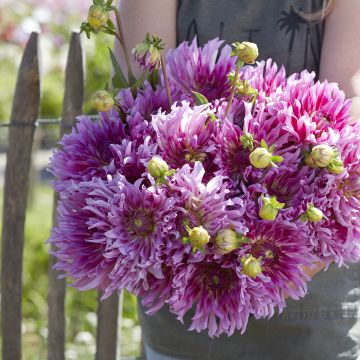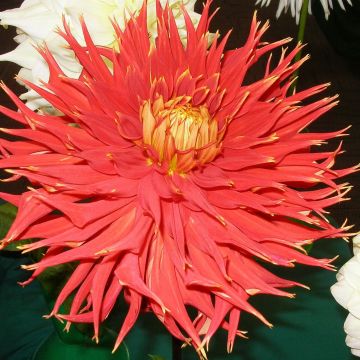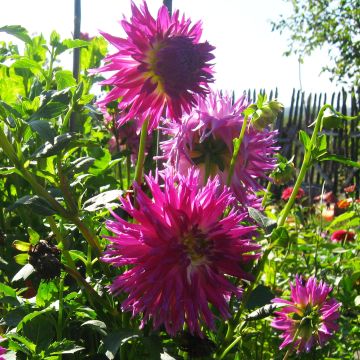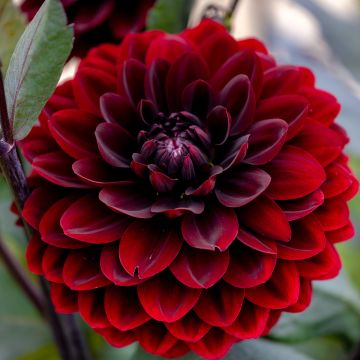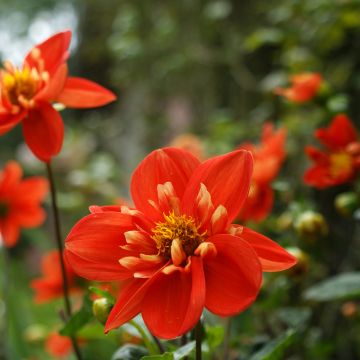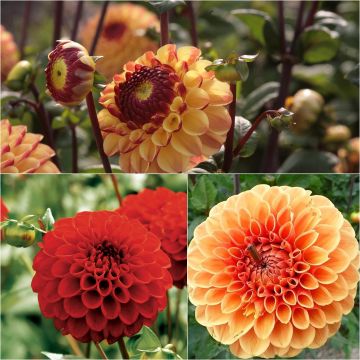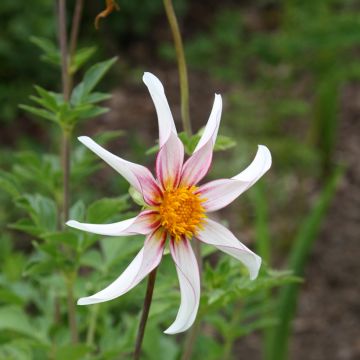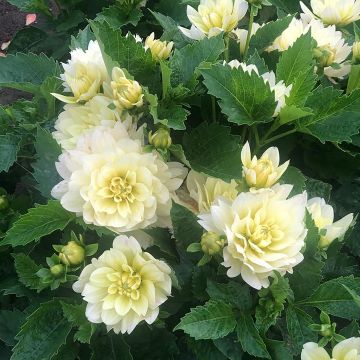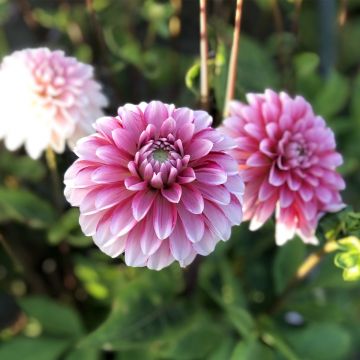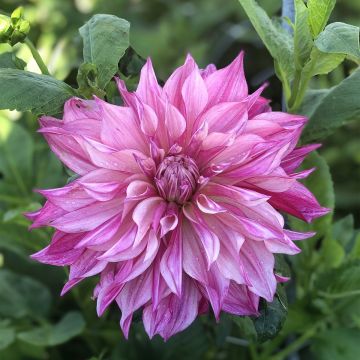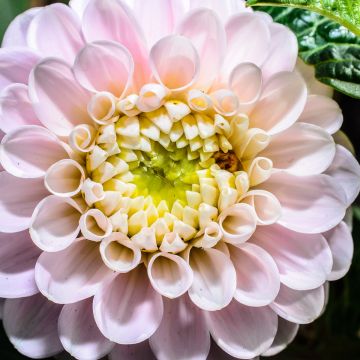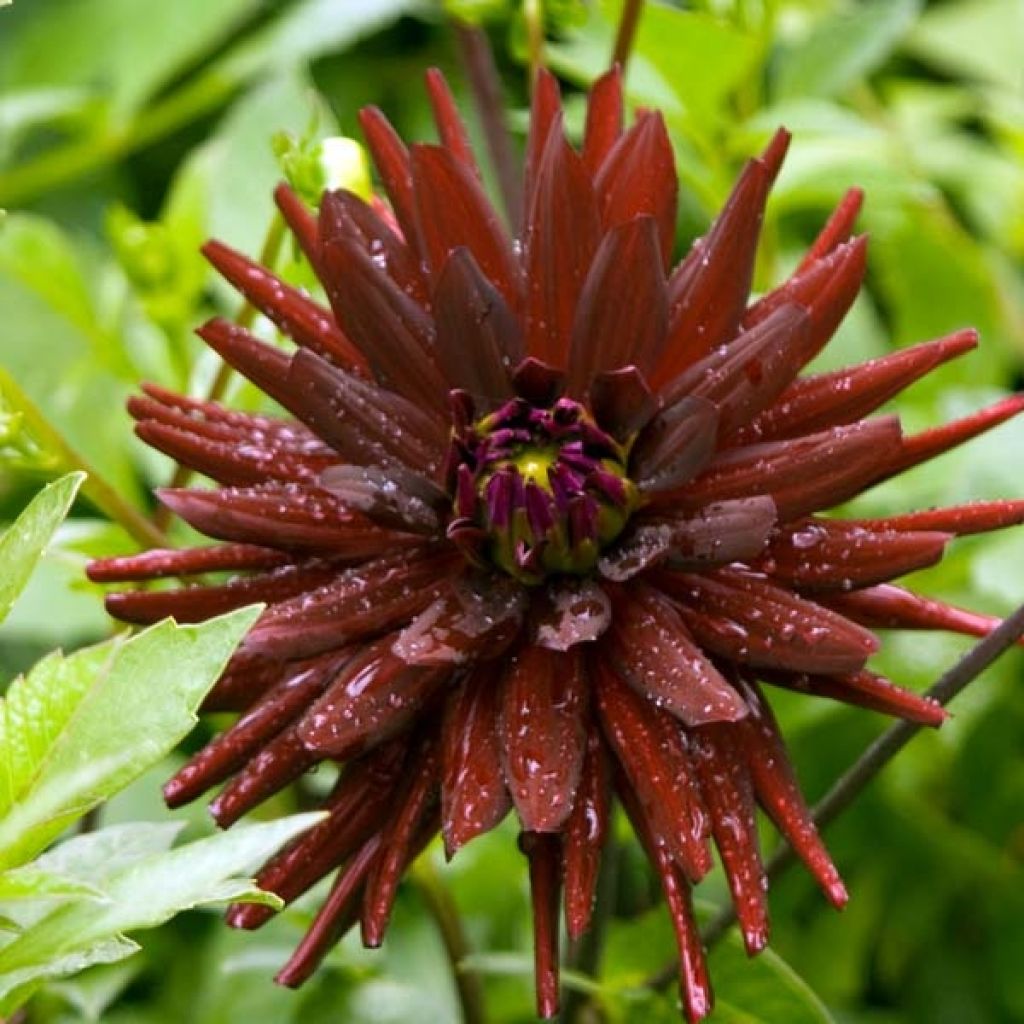

Dahlia Chat Noir
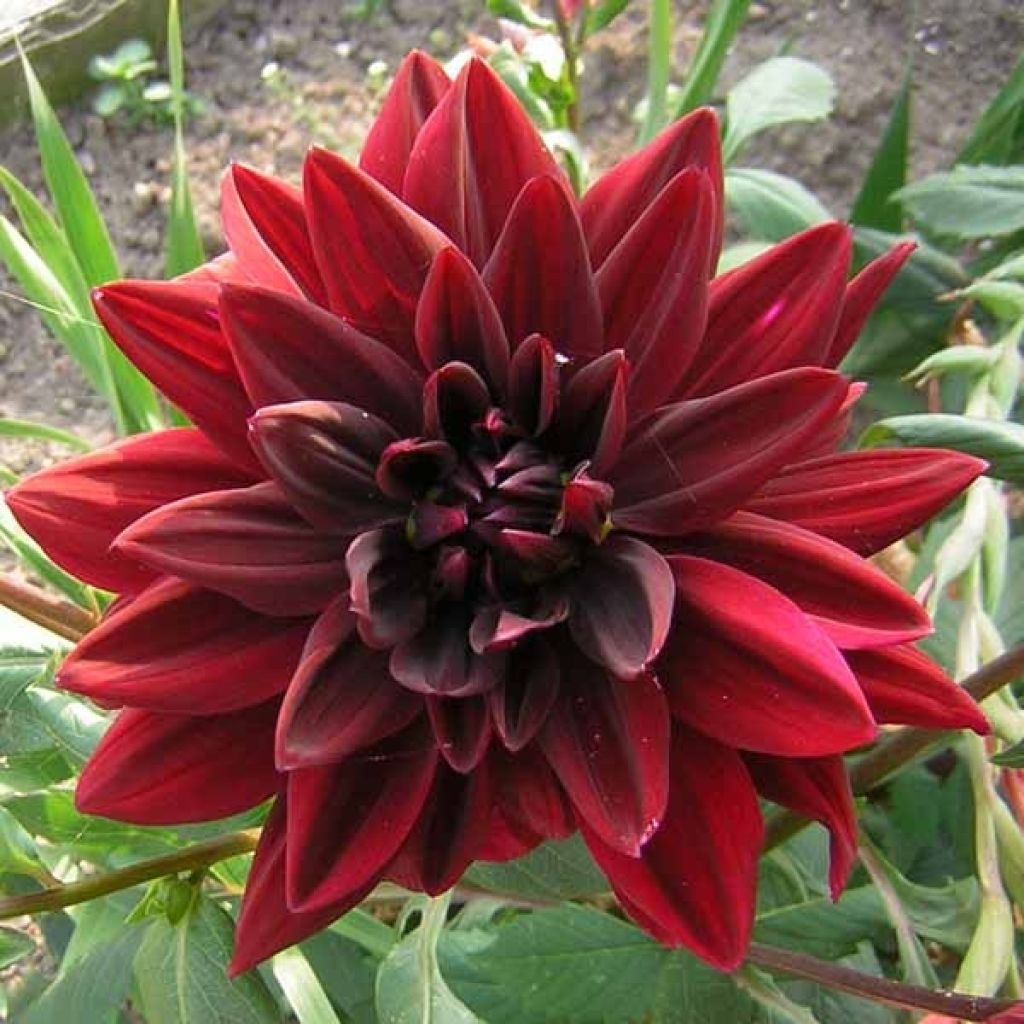

Dahlia Chat Noir
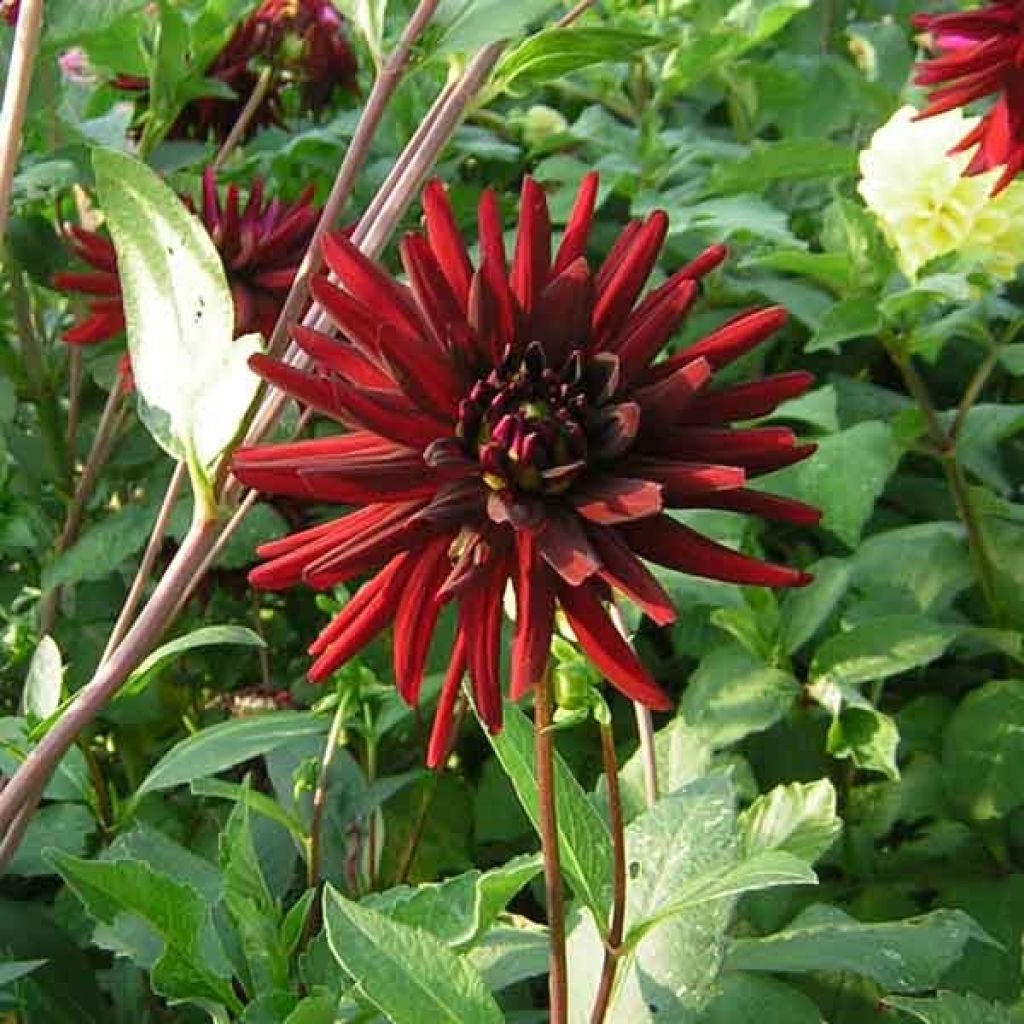

Dahlia Chat Noir
Dahlia Chat Noir
Dahlia Chat Noir
Dahlia
Gorgeous coloring, beautiful blooming, set in a bed of dahlias in light shades and white and pink gauras.
Françoise, 02/07/2018
Special offer!
Receive a €20 voucher for any order over €90 (excluding delivery costs, credit notes, and plastic-free options)!
1- Add your favorite plants to your cart.
2- Once you have reached €90, confirm your order (you can even choose the delivery date!).
3- As soon as your order is shipped, you will receive an email containing your voucher code, valid for 3 months (90 days).
Your voucher is unique and can only be used once, for any order with a minimum value of €20, excluding delivery costs.
Can be combined with other current offers, non-divisible and non-refundable.
Home or relay delivery (depending on size and destination)
Schedule delivery date,
and select date in basket
This plant carries a 6 months recovery warranty
More information
We guarantee the quality of our plants for a full growing cycle, and will replace at our expense any plant that fails to recover under normal climatic and planting conditions.


Would this plant suit my garden?
Set up your Plantfit profile →
Description
The Dahlia Cactus 'Chat Noir forms a floriferous bush, loaded with bristling flowers that catch the eye with their bright colour, rich in dark red nuances blending into an almost black centre. Large-sized flowers with tapered petals bloom abundantly on a medium-sized plant from summer until frost. This Dahlia brings life to flower beds and allows for the creation of sumptuous bouquets well into the late season. Highly remarkable, it was awarded "Bulb of the Year in 2010". It is one of our favourites!
Dahlias belong to the Asteraceae family and are initially from the high plateaus of Mexico. At present, the approximately 25,000 horticultural varieties obtained by humans have invaded, to our great pleasure, gardens all over the world. They are hardy perennials with fleshy tubers. The Chat Noir was officially registered in 1985. The plant forms a clump about 1m (3ft) tall and 60 to 70cm (24 to 28in) wide. It is classified as a cactus dahlia, or more precisely, a semi-cactus; it is a horticultural category defined by the shape of the flower. In this group, the colourful ligules of the head partially curl up for at least 1/3 of their length. Flowering for this variety begins in July and ends in October-November. The heads measure 13 to 14cm (5 to 6in) in diameter, their color is a dark red with garnet reflections and a very dark brown-red center. The habit is bushy and upright, and the branched stems are hollow. Its leaves are opposite, pinnately divided, meaning they are divided into 3 or 5 toothed lobes. The leaves are medium green, and the stems dark green, more or less marked with purple.
To extend the flowering period and promote flower reblooming, remove faded flowers. Even better, regularly cut them to create seductive, colourful bouquets by combining several varieties.
The Dahlia 'Chat Noir' puts on a show in the garden, and its personality deserves to be highlighted with grey foliage (Dusty Miller, Tree wormwood). It can also be planted with foliage plants, such as fennel, Kochias (Bassia scoparia), or grasses like stipas or crested wheatgrass. It also pairs well with light flowers in a harmony of colours; scarlet salvias, cosmos, and love-in-a-mist make good companions without overshadowing its flowering. A flowerbed will perfectly match Echinaceas and Helenies. With Sedums and miscanthus, it will also create a nice original mix.
As the star of borders and ornamental gardens, Dahlias confidently accompany the most beautiful flowers but are equally appreciated alongside vegetable plants. In Mexico, this tuber was initially cultivated as a vegetable for consumption. But its poor taste qualities relegated it to the rank of an ornamental plant. Since then, the interest in their beautiful exuberance has never waned.
Report an error about the product description
Plant habit
Flowering
Foliage
Botanical data
Dahlia
Chat Noir
Asteraceae
Dahlia
Cultivar or hybrid
Other Cactus Dahlia
View all →Planting and care
The Dahlia 'Chat Noir' is easy to grow in all regions. For abundant flowering, it is good to follow a few simple rules. Plant the tubers in a sunny location as soon as the last frost has passed. Rich, moist, and well-drained soil is perfect. However, stagnant moisture would promote tuber rot. Feel free to amend the soil with compost and sand if necessary. Work the soil deeply and enrich it, for example, with blood, fish and bone. Place your tuber and crumble the soil well to fill without air pockets. Your dahlia should be covered with about 6 cm (2in) of soil. At the end of planting, water once abundantly, then regularly renew this watering during the first six weeks to help with rooting. Dahlias are sensitive to cold, so they need to be overwintered. In November, the first frosts blacken the foliage, which is the time to dig them up. Carefully unearth the tubers and remove as much soil as possible. Let the foliage dry so that the tubers can replenish their reserves. Then cut the stems to 10 cm (4in). Spread your bulbs in a crate on newspaper. Store them away from frost in a dry, cool, dark place like a frost-free garage or attic. In milder regions, where there are only a few days of frost per year, it is possible to leave them in place. In this case, cover the ground with a layer of leaves or straw for protection.
Tall dahlias with hollow stems do not withstand wind or heavy rain well. To overcome this inconvenience, you can stake them, but let's agree, it's not very aesthetic. On the other hand, by pinching the stems early or removing the axial flower buds, you can spread out the habit of the plant, making it more resistant to bad weather. At the same time, you channel the flow of sap to a single flower, which will become larger and more robust.
Planting period
Intended location
Care
-
, onOrder confirmed
Reply from on Promesse de fleurs
Similar products
Haven't found what you were looking for?
Hardiness is the lowest winter temperature a plant can endure without suffering serious damage or even dying. However, hardiness is affected by location (a sheltered area, such as a patio), protection (winter cover) and soil type (hardiness is improved by well-drained soil).

Photo Sharing Terms & Conditions
In order to encourage gardeners to interact and share their experiences, Promesse de fleurs offers various media enabling content to be uploaded onto its Site - in particular via the ‘Photo sharing’ module.
The User agrees to refrain from:
- Posting any content that is illegal, prejudicial, insulting, racist, inciteful to hatred, revisionist, contrary to public decency, that infringes on privacy or on the privacy rights of third parties, in particular the publicity rights of persons and goods, intellectual property rights, or the right to privacy.
- Submitting content on behalf of a third party;
- Impersonate the identity of a third party and/or publish any personal information about a third party;
In general, the User undertakes to refrain from any unethical behaviour.
All Content (in particular text, comments, files, images, photos, videos, creative works, etc.), which may be subject to property or intellectual property rights, image or other private rights, shall remain the property of the User, subject to the limited rights granted by the terms of the licence granted by Promesse de fleurs as stated below. Users are at liberty to publish or not to publish such Content on the Site, notably via the ‘Photo Sharing’ facility, and accept that this Content shall be made public and freely accessible, notably on the Internet.
Users further acknowledge, undertake to have ,and guarantee that they hold all necessary rights and permissions to publish such material on the Site, in particular with regard to the legislation in force pertaining to any privacy, property, intellectual property, image, or contractual rights, or rights of any other nature. By publishing such Content on the Site, Users acknowledge accepting full liability as publishers of the Content within the meaning of the law, and grant Promesse de fleurs, free of charge, an inclusive, worldwide licence for the said Content for the entire duration of its publication, including all reproduction, representation, up/downloading, displaying, performing, transmission, and storage rights.
Users also grant permission for their name to be linked to the Content and accept that this link may not always be made available.
By engaging in posting material, Users consent to their Content becoming automatically accessible on the Internet, in particular on other sites and/or blogs and/or web pages of the Promesse de fleurs site, including in particular social pages and the Promesse de fleurs catalogue.
Users may secure the removal of entrusted content free of charge by issuing a simple request via our contact form.
The flowering period indicated on our website applies to countries and regions located in USDA zone 8 (France, the United Kingdom, Ireland, the Netherlands, etc.)
It will vary according to where you live:
- In zones 9 to 10 (Italy, Spain, Greece, etc.), flowering will occur about 2 to 4 weeks earlier.
- In zones 6 to 7 (Germany, Poland, Slovenia, and lower mountainous regions), flowering will be delayed by 2 to 3 weeks.
- In zone 5 (Central Europe, Scandinavia), blooming will be delayed by 3 to 5 weeks.
In temperate climates, pruning of spring-flowering shrubs (forsythia, spireas, etc.) should be done just after flowering.
Pruning of summer-flowering shrubs (Indian Lilac, Perovskia, etc.) can be done in winter or spring.
In cold regions as well as with frost-sensitive plants, avoid pruning too early when severe frosts may still occur.
The planting period indicated on our website applies to countries and regions located in USDA zone 8 (France, United Kingdom, Ireland, Netherlands).
It will vary according to where you live:
- In Mediterranean zones (Marseille, Madrid, Milan, etc.), autumn and winter are the best planting periods.
- In continental zones (Strasbourg, Munich, Vienna, etc.), delay planting by 2 to 3 weeks in spring and bring it forward by 2 to 4 weeks in autumn.
- In mountainous regions (the Alps, Pyrenees, Carpathians, etc.), it is best to plant in late spring (May-June) or late summer (August-September).
The harvesting period indicated on our website applies to countries and regions in USDA zone 8 (France, England, Ireland, the Netherlands).
In colder areas (Scandinavia, Poland, Austria...) fruit and vegetable harvests are likely to be delayed by 3-4 weeks.
In warmer areas (Italy, Spain, Greece, etc.), harvesting will probably take place earlier, depending on weather conditions.
The sowing periods indicated on our website apply to countries and regions within USDA Zone 8 (France, UK, Ireland, Netherlands).
In colder areas (Scandinavia, Poland, Austria...), delay any outdoor sowing by 3-4 weeks, or sow under glass.
In warmer climes (Italy, Spain, Greece, etc.), bring outdoor sowing forward by a few weeks.






























